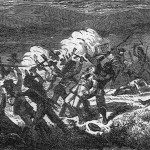For example, I come from a poor family and due to poor teaching I lost interest in learning mathematics. As a result I scored only 39% in mathematics (35% required for a pass) in S.S.L.C. (Secondary School Leaving Certificate, India); in the Intermediate Science examination I scored 50% in mathematics. When I entered the Bachelor of Science degree class, I realized there is no way I can escape from mathematics and I resolved to conquer mathematics. With determination I found pleasure in learning mathematics by myself. The pleasure was akin to one derives in falling love with his/her beloved girl/boy friend or would be wife/husband. This pleasure changed my whole life. I started to score 100% in mathematics in all the class tests and mid-term examinations. In the final B.Sc. examination I scored more than 70% in mathematics.
Take the example of Archimedes. When he discovered the principle of specific gravity by observing his own displacement of water in a bathtub, he leaped out with great joy, and shouted, "Eureka, Eureka!" ("I have found it. I have found it!") He was overwhelmed with joy and ran naked. All children possess the same instinct that prompted his outburst, and the rapture of its gratification.
Learning is a natural pleasure. This pleasure is inborn and instinctive. The pleasure of learning is one of the essential pleasures of the human race. Without learning, survival itself is threatened. It is said that the propagation of the human race might be endangered if the knowledge of sex through seeing, reading, or hearing is withheld from everyone.
The process of learning starts right after birth. It is true that babies who can barely talk investigate problems with all the zeal and excitement of explorers, make discoveries with the passion and absorption of dedicated scientists. At the end of each successful investigation, one can see on the tiny face an expression of innocent and pure heartfelt pleasure. The process of physical growth stops when a boy or girl reaches puberty, that is with the onset of menarche in the girls and with the change in the voice and growth of moustache and beard in boys. After puberty it is impossible to increase the height both in boys and girls. It is only possible to increase their widths by fattening.
On the other hand, the mental faculties grow from birth until death. At some point in our lifetime, the physical body becomes sick or ill and gradually dies; even the emotions become duller. But the mind continues to live, and even grows more lively and active, enjoys itself more, works and plays with more expansion and delight. I have seen grandparents obtaining B.A., M.A., and Ph. D. degrees at the ages of 70, 80, or 90. There are many examples in the history of Art, Music, and Science of both men and women who significantly contributed and lead mentally productive lives at their ripe old ages.
My own grandmother at 90 has vivid memories and narrates events, which occurred 70 or 80 years ago in her young age, very clearly. Learning extends our lives into new dimensions. It is cumulative. Instead of diminishing in time, like health and strength, its dividends go on increasing, provided one continues to learn throughout life and integrate the thoughts and make learning harmonious. One should make it a point to learn at least one new piece of information each day. Now one can learn even during sleep. This is accomplished with headphones attached to the ears and repeats playing of phonographs or taped cassettes. This method of sleep-learning is found most useful in linguistics, learning new languages.
The pleasure of learning is not confined to learning from textbooks, which are too often tedious. But it does include learning from book magazines (periodicals), newspapers, and movies. When you stand in a big library in front of thousands of books do not think they are lumps of lifeless paper, but minds alive on the shelves. Each has its own voice, which is as inaudible as the radiobroadcast waves falling directly on ears. Just as one switches on the radio to hear, so does one just need to open a book to hear the voice far distant in time and space. One can hear the voice speaking, mind to mind and heart to heart. Reading of books gives you two different delights. One is the pleasure of understanding the unknown and the unexpected. The other pleasure is of deepening one's knowledge of a specified field.
Apart from books, learning means keeping the mind open and active to receive all kinds of experience. The Mahabharatha says, "Learn from the Environment and absorb the good things." As pointed out earlier there is great emphasis on learning and seeking knowledge in Islam. The Prophet Mohammed ordered Muslims to be active in their search for learning, crossing oceans and continents if necessary. "Seek knowledge even in China," he said. Learning also means learning to practice one's own professional skills -- whether that of a surgeon, musician, or craftsman.




